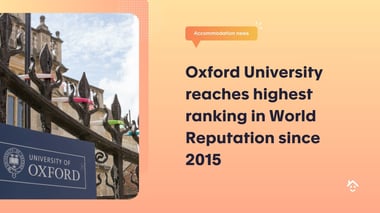In a recent announcement, Canada's Immigration Minister, Marc Miller, revealed plans to implement a temporary two-year cap on the issuance of new study permits for international students. This move is part of the Canadian government's broader efforts to enhance the integrity controls within the student visa program.
As the United Kingdom grapples with its own restrictions on international students, Canada's decision may have ripple effects that could benefit the UK's international student applications.
The Canadian government has outlined three key measures.
The most significant measure of the three remains the temporary two-year cap on new international study permits. This cap, expected to result in approximately 364,000 approved study permits for 2024, marks a 35% decrease from the permits issued in 2023.
Crucially, the distribution of study permits will be based on provincial populations, with some provinces facing more substantial reductions.
Certain groups are exempt from the two-year cap.
The cap, however, does not apply to students in graduate-level programs or those at the elementary and secondary school levels. This exemption raises questions about the actual reduction percentage, suggesting it could be less than the initially stated 35%.
Minister Miller clarified that the cap will not impact continuing students or applicants within Canada looking to extend their studies.
The temporary cap is set to be re-evaluated at the end of 2024.
The temporary cap will be re-evaluated at the end of 2024, with the government continuing to collaborate with provinces, learning institutions, and education stakeholders to develop a sustainable path forward for international students.
Minister Miller, speaking in Montréal on 22 January, emphasised the importance of maintaining the quality of education for incoming students. He stated, "These measures are to ensure that as future students arrive in Canada, they receive the quality of education that they signed up for and the hope that they were provided in their home countries."
Meanwhile, the UK has been grappling with its own challenges regarding international student applications.
Recent restrictions and uncertainties may have led some students to consider alternative destinations, such as Canada. However, with Canada imposing its own study permit cap, the dynamics may shift, potentially steering students back towards the UK.
This development has caught the attention of various stakeholders, with concerns raised about the potential consequences of such a broad-stroke approach. The Canadian Bureau for International Education (CBIE) expressed concerns about the unintended consequences of a one-size-fits-all solution, while Colleges and Institutes Canada (CICan) warned of potential layoffs, closures, and increased tuition fees.
As the situation unfolds, the impact on international student mobility remains uncertain.
Canada's move to tighten controls may indeed address concerns about program integrity, but it also raises questions about the broader implications for the country's reputation as an attractive destination for international education.
In the coming weeks, the evolving landscape may present an opportunity for the UK to reassess and potentially capitalise on the changing preferences of international students.
Whether this translates into a positive shift in UK international applications remains to be seen, but the intricate dance of global student mobility continues to shape the choices of aspiring scholars around the world.



